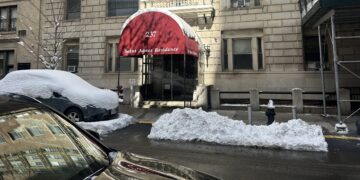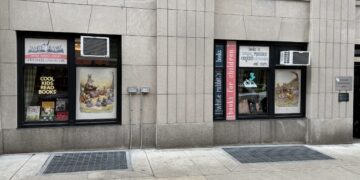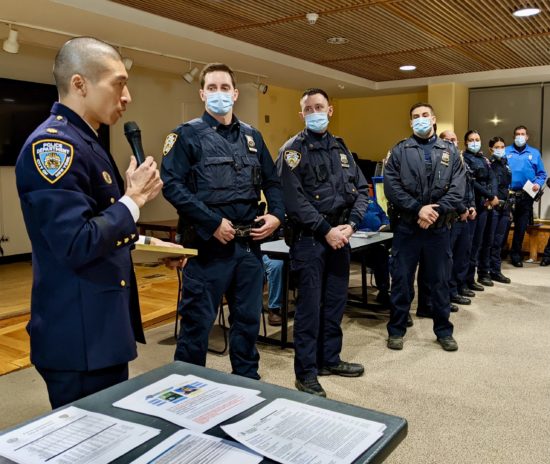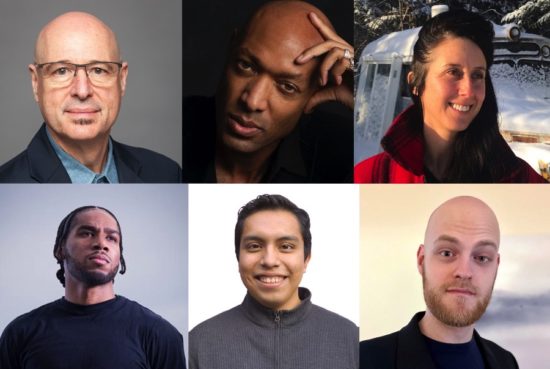
By Marie Holmes
Coming out of a protracted time in which we have all remained separate physically with the shared goal of protecting one another, we are perhaps better poised to receive a message about the urgency of human connection and the inhumanity that defines incarceration.
That message is coming in the form of music by a socially conscious new-music group, Ensemble Pi, which will be performing at the Center at Park West, at 165 W. 86th Street (Amsterdam Avenue), on March 2 at 7p.m.
The one-night-only concert features four compositions commissioned specifically for this performance and inspired by the ‘radical kinship’ philosophy of Jesuit priest Greg Boyle, who leads the Los Angeles-based Homeboy Industries, a rehabilitation and reentry program for former gang members.
Ensemble Pi, founded in 2002, consists of ten instrumentalists and vocalists and is led by artistic director and pianist Idith Meshulam Korman.
“We had a very distinct creed very early that we were going to be socially conscious,” says Meshulam Korman. Previous shows have focused on a number of social justice causes, such as protesting the invasion of Iraq or supporting the Black Lives Matter movement.
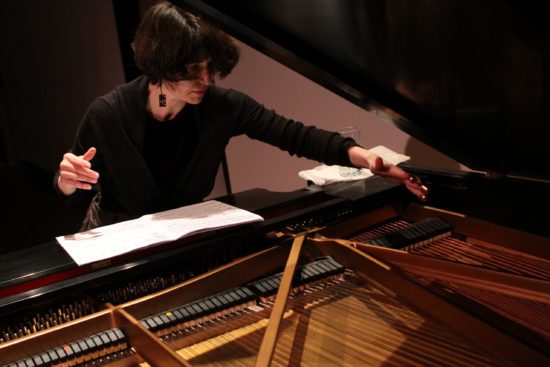
This concert’s theme, ‘radical kinship,’ might not seem as clear as some of those other issues. Alternatively, it could also be viewed as an underpinning to them all.
In Boyle’s understanding, as he explained to his audience at a Los Angeles Times Book Club breakfast, “kinship is about saying, ‘We belong to each other: homeless, immigrant, gang member. There isn’t anybody who doesn’t belong.”
The Ensemble Pi program focuses its lens on incarceration and aims to bring the experiences of incarcerated people, via performance, to the audience.
The show, says Meshulam Korman, will open and close with selected movements from Quartet for the End of Time, written in 1941 by Olivier Messiaen during his own imprisonment. The group will also present Part II of Frederic Rzewski’s Attica, written in 1972 in response to the uprising in the New York prison.
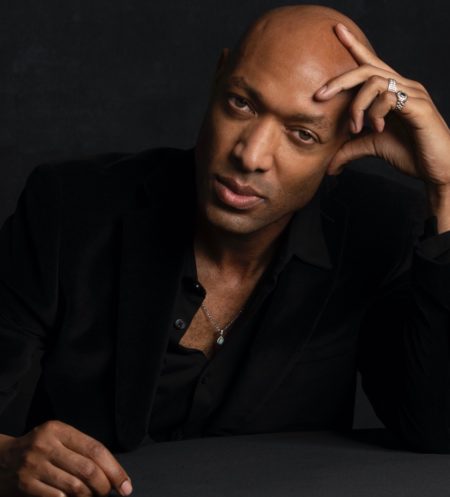
The works commissioned for the concert are: Isolated Triptych, an improvised piece combining movement, puppetry, and voice presented by dancer and puppeteer Maura Gahan and vocalist Damian Norfleet; Set of variations on “Early in the Mornin,” by Greg Welch, which features an old recording of inmates at Parchman Farm, the Mississippi prison, singing the traditional work song; A Different Way, by Ralph Mendoza and AJ Peoples, features rap by Peoples as well as text from the novel This Life, written by Quntos KunQuest, an inmate in Angola, a Louisiana prison; and Cuban-American composer Orlando Jacinto Garcia’s impulso/momentum, which features Spanish text accompanied by a chamber ensemble.
The evening will also feature the stories of two formerly incarcerated people. Charles Grosso, who served 40 years in prison and now is a full-time college student and performer who works at a homeless shelter in Albany, will present a piece entitled Resuscitation. Alberto Duque’s piece, I Had No Air, will be accompanied by Meshulam Korman with what she describes as “suffocated accordion.”
The evening will end with the closing of Messiaen’s Quartet for the End of Time, which, Meshulam Korman says, “is really about eternity, and a kind of hopefulness in a place that is not very hopeful.”
Meshulam Korman believes the program “will resonate more than before.”
“We tasted tiny bits in Covid of the isolation and being locked down,” she observes, and experienced how “time changed somehow.”
“Radical Kinship” will offer listeners a chance to lean into that resonance and imagine how their own lives might overlap with the lives of people who were, or are, incarcerated.
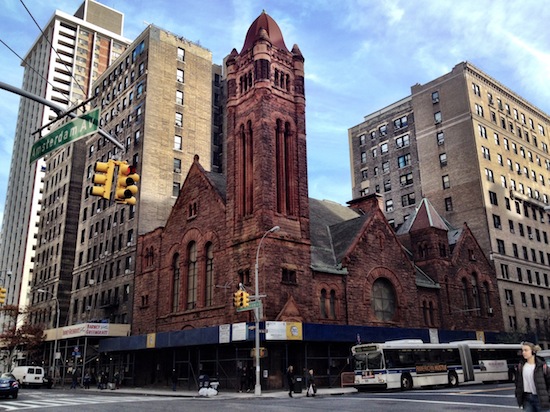
“Radical Kinship” will be presented live and streamed from The Center at Park West, 165 W 86th Street, on Wednesday, March 2, 2022, at 7p.m. Following the performance will be a Q&A with Father Boyle and the artists. A post performance video will be available on demand. Tickets are $20 general admission, $15 for students, and are available here. A portion of the proceeds will go to the Katal Center for Equity, Health, and Justice in Hartford, Connecticut.



